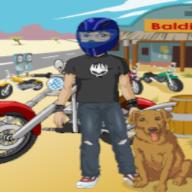要英文字的歷史~~~
2007-07-22 11:58 pm
英文字點黎嫁??
回答 (1)
2007-07-23 12:14 am
✔ 最佳答案
History of the English languageEnglish is a West Germanic language that originated from the Anglo-Frisian dialects brought to Britain by Germanic settlers and Roman auxiliary troops from various parts of what is now northwest Germany and the Northern Netherlands. Initially, Old English was a diverse group of dialects, reflecting the varied origins of the Anglo-Saxon Kingdoms of England. One of these dialects, West Saxon, eventually came to dominate. The original Old English language was then influenced by two waves of invasion. The first was by language speakers of the Scandinavian branch of the Germanic family; they conquered and colonized parts of Britain in the 8th and 9th centuries. The second was the Normans in the 11th century, who spoke Old French and ultimately developed an English variety of this called Anglo-Norman. These two invasions caused English to become "mixed" to some degree (though it was never a truly mixed language in the strict linguistic sense of the word; mixed languages arise from the cohabitation of speakers of different languages, who develop a hybrid tongue for basic communication).
Cohabitation with the Scandinavians resulted in a significant grammatical simplification and lexical enrichment of the Anglo-Frisian core of English; the later Norman occupation led to the grafting onto that Germanic core of a more elaborate layer of words from the Romance branch of the European languages. This Norman influence entered English largely through the courts and government. Thus, English developed into a "borrowing" language of great flexibility and with a huge vocabulary.
1.)Proto-English
The Germanic tribes who gave rise to the English language (the Angles, Saxons, Frisians, Jutes and perhaps even the Franks), traded with and fought with the Latin-speaking Roman Empire in the process of the Germanic invasion of Europe from the East. Many Latin words for common objects therefore entered the vocabulary of these Germanic people even before any of these tribes reached Britain; examples include camp, cheese, cook, fork, inch, kettle, kitchen, linen, mile, mill, mint (coin), noon, pillow, pin, pound, punt (boat), street, and wall. The Romans also gave English words which they had themselves borrowed from other languages: anchor, butter, chest, devil, dish, sack and wine.
According to the Anglo-Saxon Chronicle, around the year 449, Vortigern, King of the Britons, invited the "Angle kin" (Angles led by Hengest and Horsa) to help him in conflicts with the Picts. In return, the Angles were granted lands in the southeast of England. Further aid was sought and in response "came men of Ald Seaxum of Anglum of Iotum" (Saxons, Angles and Jutes). The Chronicle talks of a subsequent influx of settlers who eventually established seven kingdoms, known as the heptarchy. Modern scholarship considers most of this story to be legendary and politically motivated and the identification of the tribes with the Angles, Saxons and Jutes is no longer accepted as an accurate description (Myres, 1986, p. 46ff), especially since the Anglo-Saxon language is more similar to Frisian than any single one of the others.
2.)Old English
Main article: Old English language
The invaders' Germanic language displaced the indigenous Brythonic languages of what became England. The Celtic languages remained in Scotland, Wales and Cornwall. The dialects spoken by the Anglo-Saxons formed what is now called Old English. Later, it was strongly influenced by the North Germanic language Norse, spoken by the Vikings who invaded and settled mainly in the northeast of England (see Jórvík and Danelaw). The new and the earlier settlers spoke languages from different branches of the Germanic family; many of their lexical roots were the same or similar, although their grammars were more distinct, including the prefix, suffix and inflection patterns for many of their words. .
收錄日期: 2021-04-21 14:51:48
原文連結 [永久失效]:
https://hk.answers.yahoo.com/question/index?qid=20070722000051KK02283

